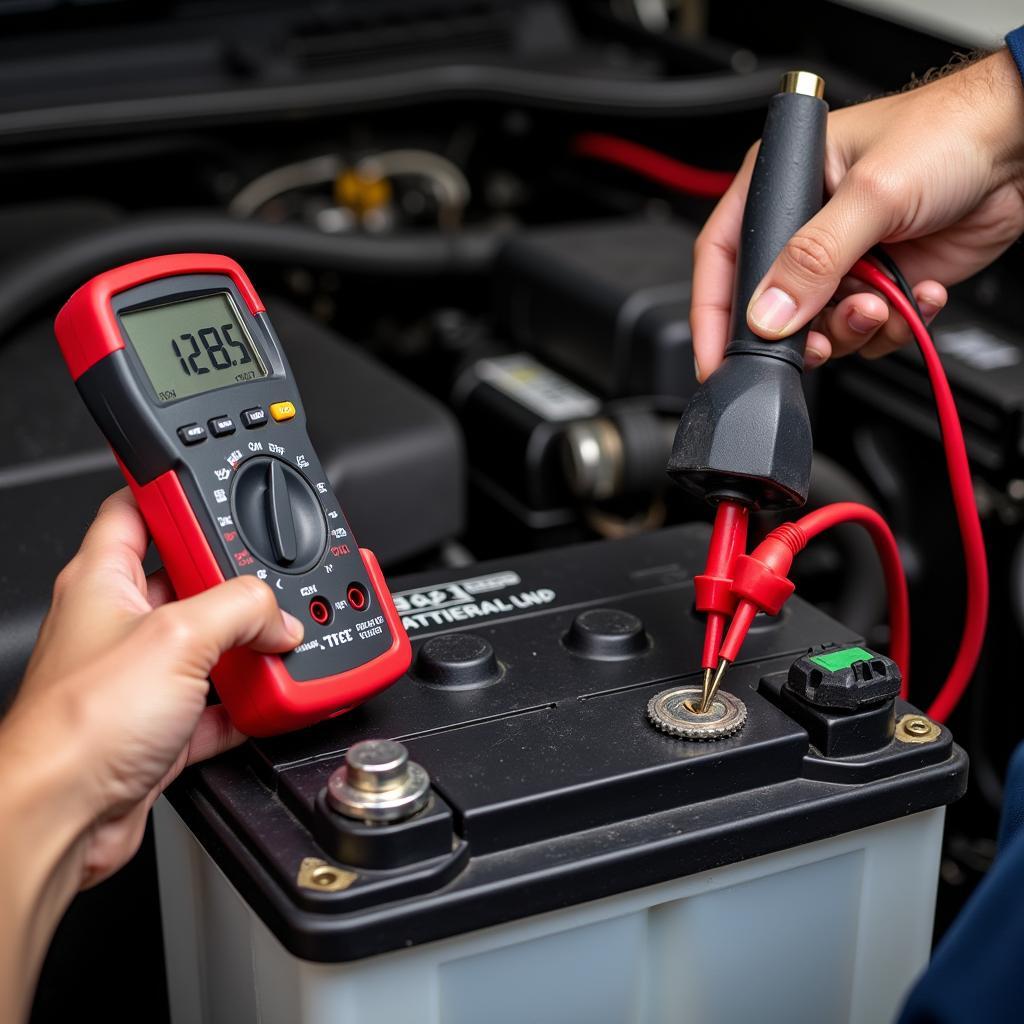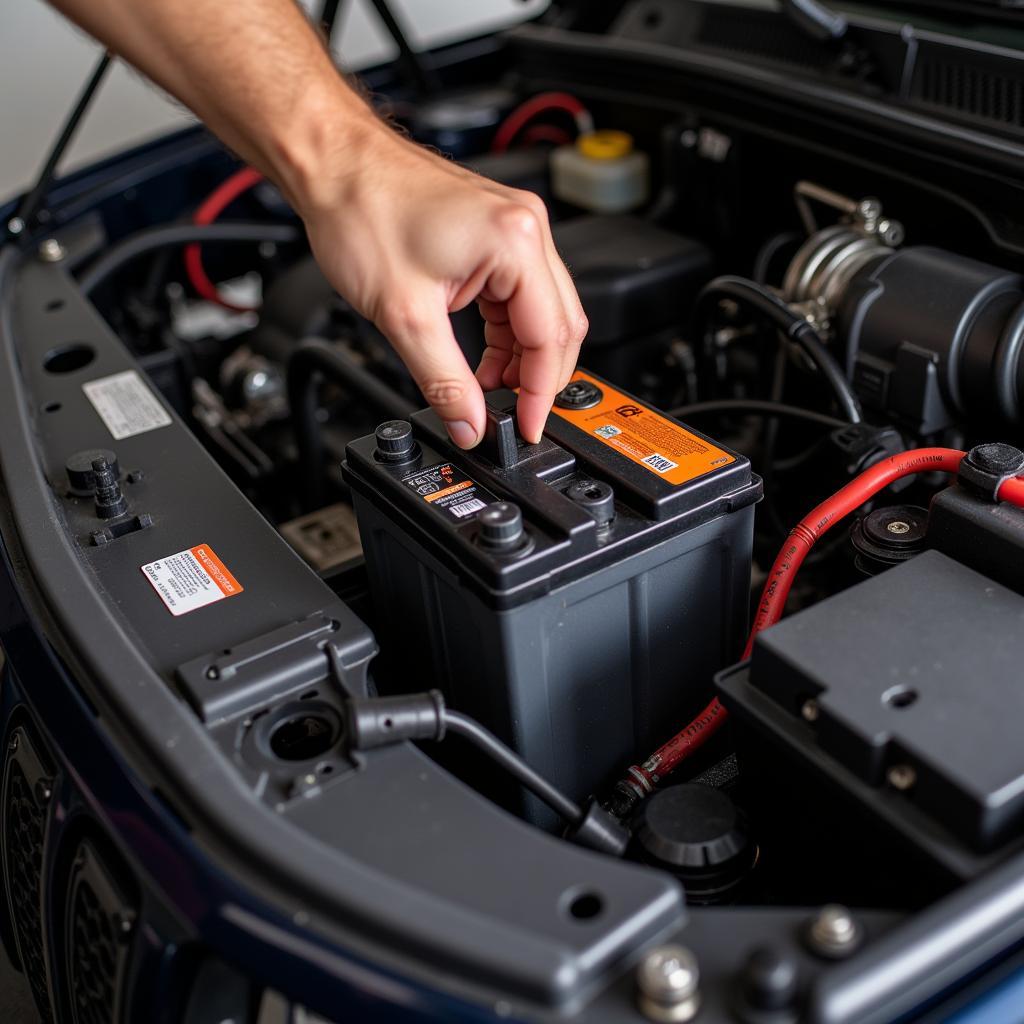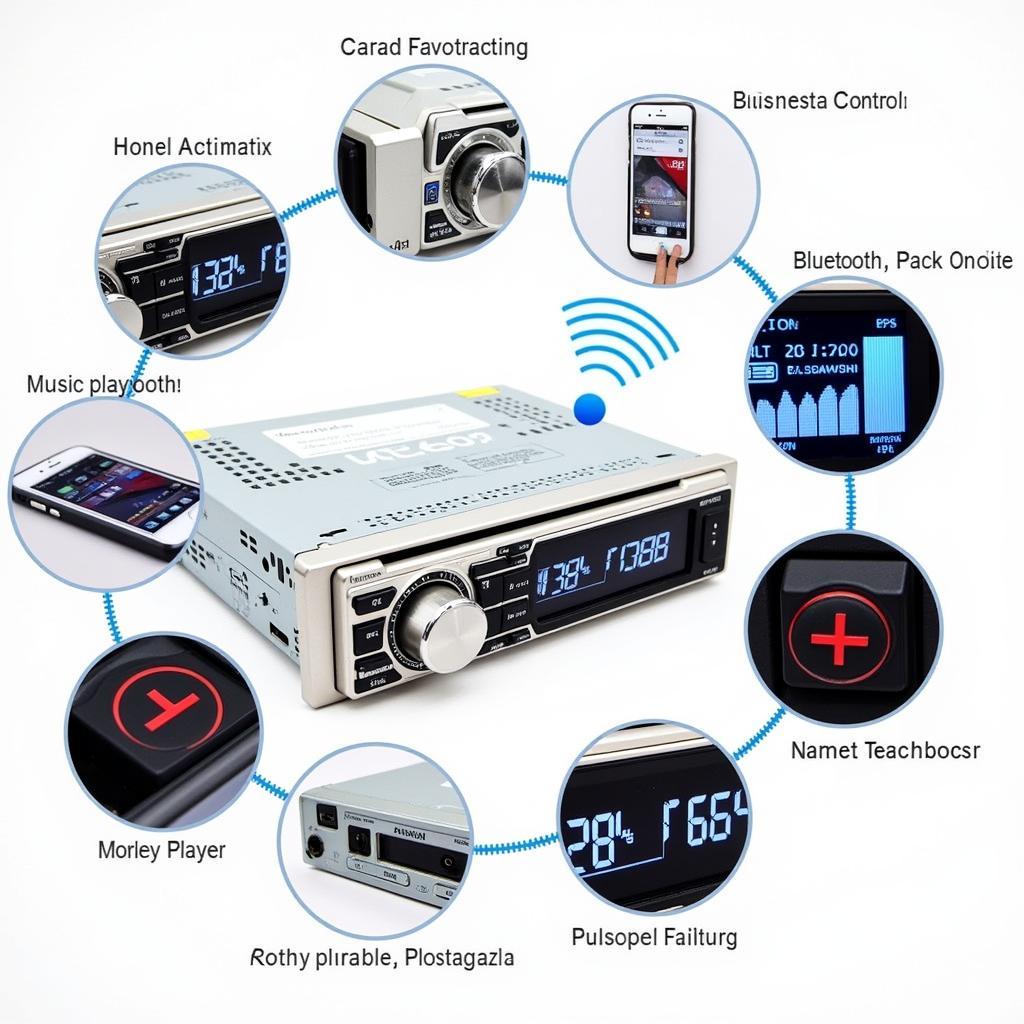Jeep battery issues can be a real headache, leaving you stranded and frustrated. Whether you’re dealing with a dead battery, slow cranking, or flickering lights, understanding the potential causes and solutions is crucial. This article delves into the common causes of Jeep battery problems, provides troubleshooting steps, and offers solutions to get you back on the road.
Common Causes of Jeep Battery Issues
Several factors can contribute to Jeep battery problems, ranging from simple fixes to more complex electrical issues. Let’s explore some of the most frequent culprits:
- Age: Like any battery, Jeep batteries have a limited lifespan. Typically, they last between three to five years. Extreme temperatures, both hot and cold, can accelerate battery degradation.
- Parasitic Drain: Even when your Jeep is off, certain electrical components can continue to draw power, slowly draining the battery. This can be caused by faulty wiring, malfunctioning modules, or even interior lights left on.
- Alternator Problems: The alternator is responsible for recharging the battery while the engine is running. A failing alternator won’t effectively recharge the battery, leading to starting problems and eventually a dead battery.
- Corrosion: Battery terminals and cables can corrode over time, hindering the flow of electricity. This corrosion can appear as a white, powdery substance around the terminals.
- Loose Connections: Loose or damaged battery cables can also prevent proper current flow, resulting in starting issues or a completely dead battery.
- Excessive Accessory Usage: Using power-hungry accessories like heated seats, the radio, or headlights while the engine is off can quickly deplete the battery.
- Extreme Temperatures: Extreme cold can reduce battery capacity, while extreme heat can accelerate battery degradation.
Troubleshooting Jeep Battery Issues
Before assuming your battery needs replacement, some troubleshooting steps can help identify the root cause:
- Check the Battery Terminals: Inspect the battery terminals for corrosion. If present, clean them with a wire brush and a mixture of baking soda and water.
- Test the Battery Voltage: Use a multimeter to test the battery voltage. A fully charged battery should read around 12.6 volts. A lower reading indicates a discharged battery.
- Check the Alternator: With the engine running, the alternator should maintain a voltage between 13.5 and 14.5 volts. A lower voltage suggests a faulty alternator.
- Inspect the Battery Cables: Ensure the battery cables are securely connected and free of damage. Replace any frayed or damaged cables.
- Perform a Parasitic Draw Test: This test involves measuring the current draw with the ignition off to identify any components draining the battery excessively.
 Testing Jeep Battery Voltage
Testing Jeep Battery Voltage
Solutions for Jeep Battery Issues
Depending on the diagnosed problem, several solutions can address your Jeep battery woes:
- Battery Replacement: If the battery is old or failing, replacement is the most straightforward solution. Choose a battery with the correct specifications for your Jeep model.
- Alternator Repair or Replacement: A failing alternator requires repair or replacement to ensure the battery is properly recharged.
- Cleaning Battery Terminals: Regularly cleaning the battery terminals and cables can prevent corrosion and ensure good electrical contact.
- Addressing Parasitic Drain: Identify and fix the source of any parasitic drain. This might involve repairing faulty wiring, replacing malfunctioning modules, or simply making sure interior lights are turned off.
- Limiting Accessory Usage: Avoid using power-hungry accessories while the engine is off to conserve battery power.
“Regular battery maintenance, such as cleaning terminals and checking voltage, can significantly extend battery life and prevent unexpected issues,” advises John Smith, a seasoned automotive electrician with over 20 years of experience.
What if My Jeep Battery Keeps Dying?
If your Jeep battery keeps dying, it indicates an underlying problem that needs immediate attention. It could be a faulty alternator, a parasitic drain, or even a bad ground connection.
“Don’t ignore a repeatedly dying battery,” warns Maria Garcia, a certified automotive technician. “Ignoring the issue could lead to being stranded and potentially damage other electrical components.”
 Replacing a Jeep Battery
Replacing a Jeep Battery
Conclusion
Jeep battery issues can be annoying, but understanding the common causes and solutions empowers you to troubleshoot and resolve them effectively. By following the troubleshooting steps and implementing the suggested solutions, you can keep your Jeep running smoothly and avoid being stranded with a dead battery. Regular maintenance and proactive care are key to a long and healthy battery life.
FAQ
- How often should I replace my Jeep battery? Typically, Jeep batteries last 3-5 years.
- What are the signs of a bad alternator? Signs include dim headlights, flickering interior lights, and a dead battery.
- How can I prevent battery corrosion? Regularly clean the battery terminals with a baking soda and water solution.
- Can I jump-start my Jeep? Yes, but follow the proper procedure to avoid damage.
- What is a parasitic drain? It’s a constant drain on the battery even when the vehicle is off.
- How can I test for a parasitic drain? Use a multimeter to measure current draw with the ignition off.
- Where can I find the correct battery specifications for my Jeep? Consult your owner’s manual or a reputable auto parts store.



